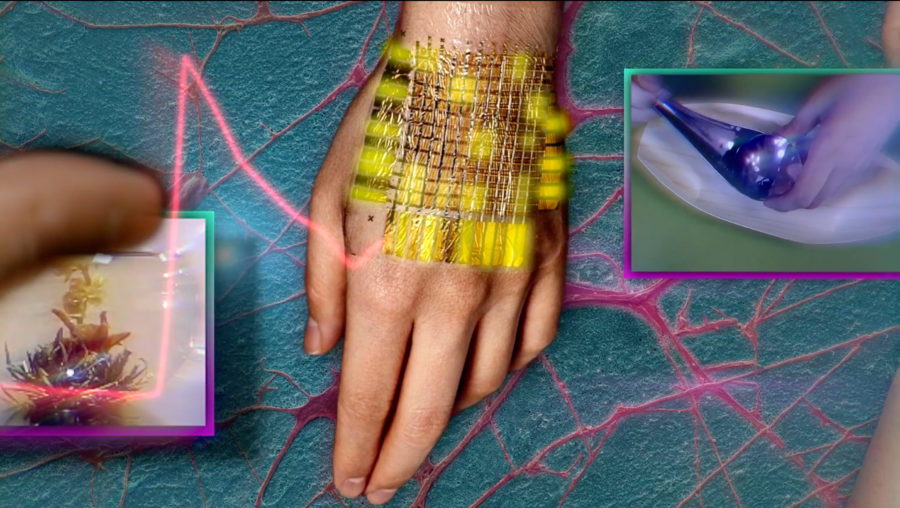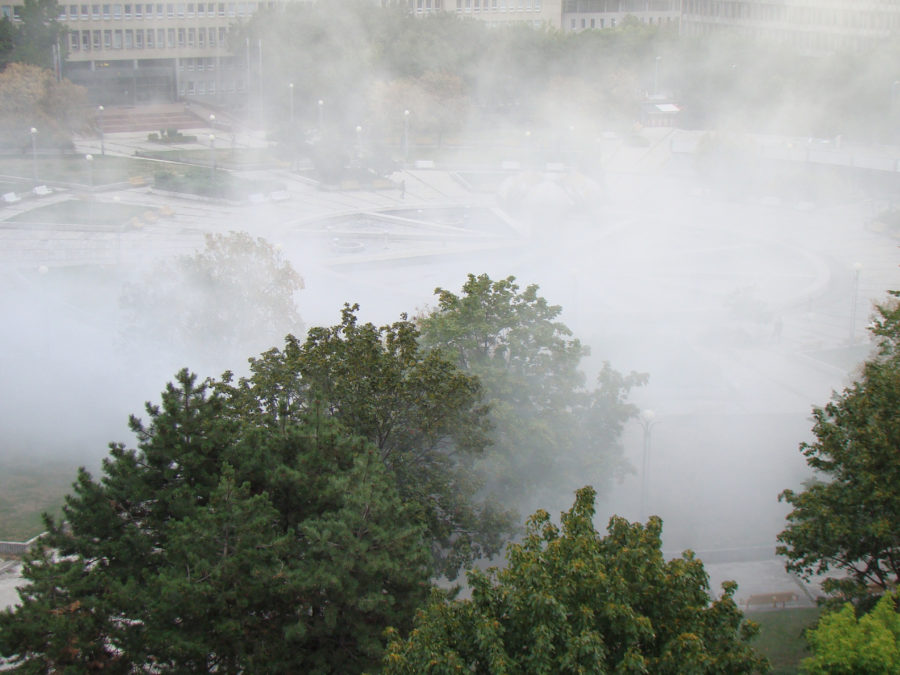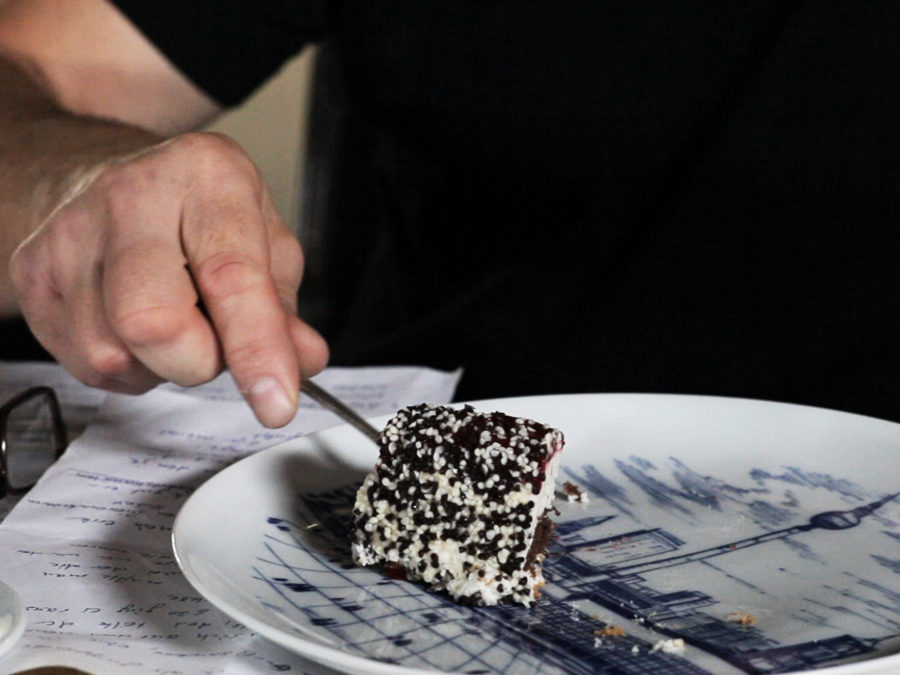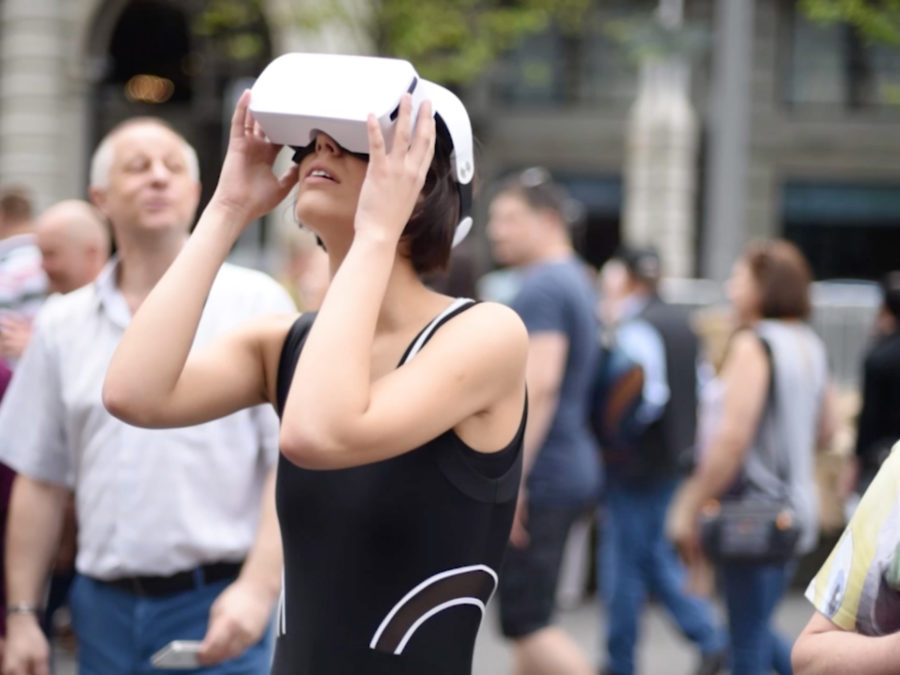Now we know: according to the results of various contradictory experiments in psychological research, there is no sound evidence for any direct or significant effect of subliminal messaging and stimuli on consumers’ decisions. However, although the idea of subliminal messages has been highly contested ever since its first introduction in 1957, (1) it is undeniable that a perpetual online presence and the continuous exposure to repetitive textual and visual directives gradually leave their traces on our memory. They alter our opinions so that, even if these effects are not conspicuous, eventually they may skew our thresholds for taking conscious action.
Precisely this concept of neuroplasticity informs Marija Bozinovska Jones’ works. They address the long-term influence and internalization of visual culture, its evolutionary effects on the human amygdala, and the intense reciprocity between the socio-political spaces where we function everyday. Bozinovska Jones’ works focus on the effects of the aggressive advertisements and infomercials that intrude on our mental space both within virtual and physical public space. The artist is also invested in researching the effects of the perpetuation and omnipresence of imageries on the construction of the self-image. Her works highlight the superficial and contentious intersubjective relations wrought through digital communications and social media.
A mock infomercial, Bozinovska Jones’ work Self-Optimization is a critique of the influence of imagery and text that proliferate around us. It comments on how they change our attitudes and amplify our expectations toward our bodies, identities, and selves. Regardless as to whether it is a subliminal, subconscious plane or a supraliminal level of perception informing these opinions, the frightening potential of such targeted interventions intrigue and prompt the artist’s interests. The work itself is an ironic take on an imaginary promotional ad. By framing it as a not so distant cousin of contemporary advertisements, the artist conceptualizes Self-Optimization as an ironic endorsement of futuristic procedures and prosthetic devices that aid in amending the image of the self. It thus enables a consumer-driven optimization of humans – especially the ones who’d otherwise lag behind in updating their capacities or fail to adjust to and embrace the newest developments in media and technology. The work deploys the idea of subliminal messaging as a kind of recurrent metaphor for biopower and biopolitics, rather than as an exemplary analytical model proven through scientific results. Ultimately, the artist unravels the various complex anti-utopian mechanisms that gradually inscribe profound fears and frustrations on the contemporary subject and contribute to the vicious cycle of their feeling incapable of fulfilling societal expectations.
Bozinovska Jones’ three short videos entitled Dream Holidays Unlimited are another ironic take – this time on alienating and incongruous environments. The mockvertisement presents an imaginary travel agency’s holiday packages bound to fictitious AR (2) destinations. Here, some references particularly resonate with the current “refurbishment” of public space in post-socialist Eastern European countries, including Macedonia (the artist’s country of birth). In contrast to dystopian sci-fi narratives inspired by Hollywood (e.g. Total Recall, Blade Runner), where the implanted memories of faux landscapes and vacation spots lure the characters into forging imaginary lives, Bozinovska Jones points to real contexts of falsely embedded collective memories (e.g. building monuments of questionable historic relevance), which programmatically overwrite basic humanist principles with ruthless, neoliberal, profit-driven pragmatism. Without making implicit warnings, her work indicates that this continuous ideological re-writing endangers existing, multidirectional, and shared collective memories of an anti-fascist, socialist, and modernist past. This puts friendships, solidarity, and historical integrity at stake as well as groups of marginalized ethnic, religious, cultural, gender, and sexual identity at risk.
In her work, Bozinovska Jones creates various avatars such as her wetware alias MBJ who manifest and amplify different peculiar details of these investigative phenomena through simulated heterotopian landscapes and during her immersive live performances.
(1) Smith, Kirk H.; Rogers, Martha (1994). “Effectiveness of subliminal messages in television commercials: Two experiments.” Journal of Applied Psychology. 79 (6): 866–874.
(2) Augmented Reality.
Text by Suzana Milevska
Director: Ewan Jones Morris
Subliminal Videos: Dream Holidays Unlimited 1-3, 2014, single-channel video (HD), 1’46’’, color, sound, 16:9 | Courtesy: the artist
Marija Bozinovska Jones explores links between social, computational, and neural architectures. Her work revolves around the formation of identity within amplified technocapitalism, probing the self as datafied and distributed identity through MBJ Wetware. Unpacking cryptic ways of forging subjectivity, she contemplates intelligence within artificial, auto-regulation, and coping mechanisms: from trends in self-improvement to decentralized technologies. Among other places, her work has been presented at Sonic Acts Academy, Amsterdam, CTM and Transmediale in Berlin, Art Night, Furtherfield and Somerset House Studios in London, where she is a studio resident. Jones graduated with a Masters in Computational Arts at Goldsmiths.







